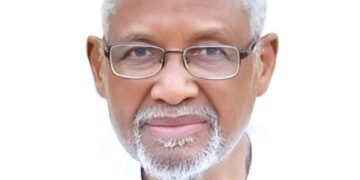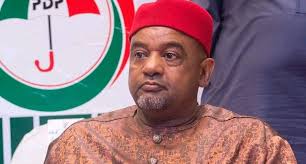Nigeria’s oil sector, a cornerstone of its economy, has long been plagued by inefficiencies, corruption, and mismanagement. One recurring issue is the tendency of Nigerian presidents to appoint themselves as Petroleum Ministers. This practice, seen under leaders like Muhammadu Buhari and Bola Tinubu, undermines transparency, concentrates power, and hinders effective governance of the oil industry. For the sake of Nigeria’s economic stability and global reputation, this tradition must end.
Firstly, the dual role of the president and the Petroleum Minister creates a conflict of interest. The president, as the nation’s chief executive, is responsible for overseeing all sectors, including petroleum. By also serving as Petroleum Minister, they directly control a ministry that generates over 80% of Nigeria’s foreign exchange earnings. This concentration of power reduces accountability, as there is no independent ministerial oversight to challenge decisions or expose mismanagement. For instance, during Buhari’s tenure (2015–2023), the oil sector faced persistent fuel subsidy scandals and refinery mismanagement, with little clarity on decision-making processes due to his dual role.
Secondly, the oil industry requires specialized expertise and full-time leadership. The Petroleum Minister’s role involves managing complex policies, negotiating international oil contracts, and overseeing agencies like the Nigerian National Petroleum Company (NNPC). A president, burdened with national responsibilities, cannot dedicate sufficient time or focus to these tasks. This often leads to reliance on unaccountable aides or deputies, as seen under Tinubu’s administration, where the Minister of State for Petroleum operates with limited authority. Such arrangements breed inefficiency and confusion in policy implementation.
Thirdly, self-appointment fuels perceptions of corruption. Nigeria’s oil sector has a notorious history of opacity, with allegations of misappropriated revenues and uncompetitive contract awards. When a president doubles as Petroleum Minister, it raises suspicions of personal interest in lucrative oil deals, even if unfounded. This erodes public trust and deters foreign investment, as global partners seek transparent governance. The 2023 Transparency International Corruption Perceptions Index ranked Nigeria 145 out of 180 countries, partly due to governance issues in key sectors like oil.
Finally, separating the roles would strengthen institutional checks and balances. An independent Petroleum Minister, appointed based on expertise, could be held accountable by the president, the National Assembly, and the public. This would promote merit-driven policies and reduce the risk of autocratic control over Nigeria’s most vital resource.
To restore confidence in the oil sector, Nigeria’s president must relinquish the Petroleum Minister role. Appointing a qualified, independent minister would enhance accountability, expertise, and transparency, paving the way for a more prosperous and stable oil industry. Nigeria’s economic future depends on it.









































